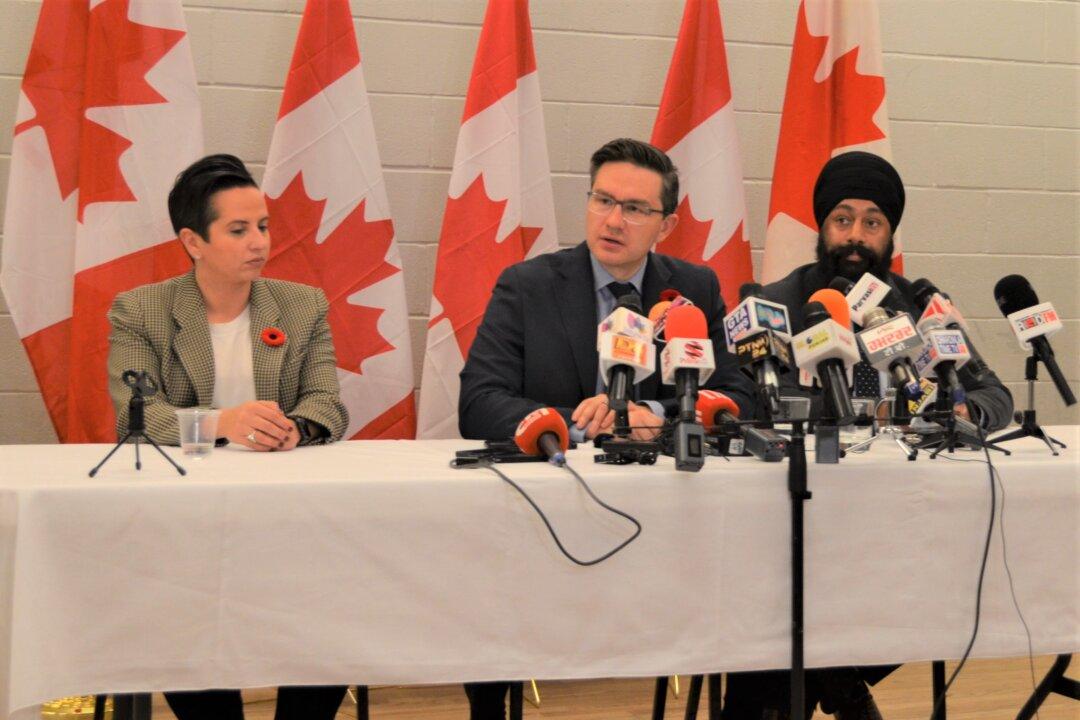Canadian industry has lost hundreds of billions worth of investment funds to red tape, which is the greatest barrier to attracting foreign investment, says Pierre Poilievre, while noting the country has to reform its tax system to retain the workforce that investors and businesses need.
Speaking to reporters on Oct. 30 at his first press conference as the Leader of the Conservative Party, Poilievre addressed a question about how Canada can attract more affluent investors from around the world.





